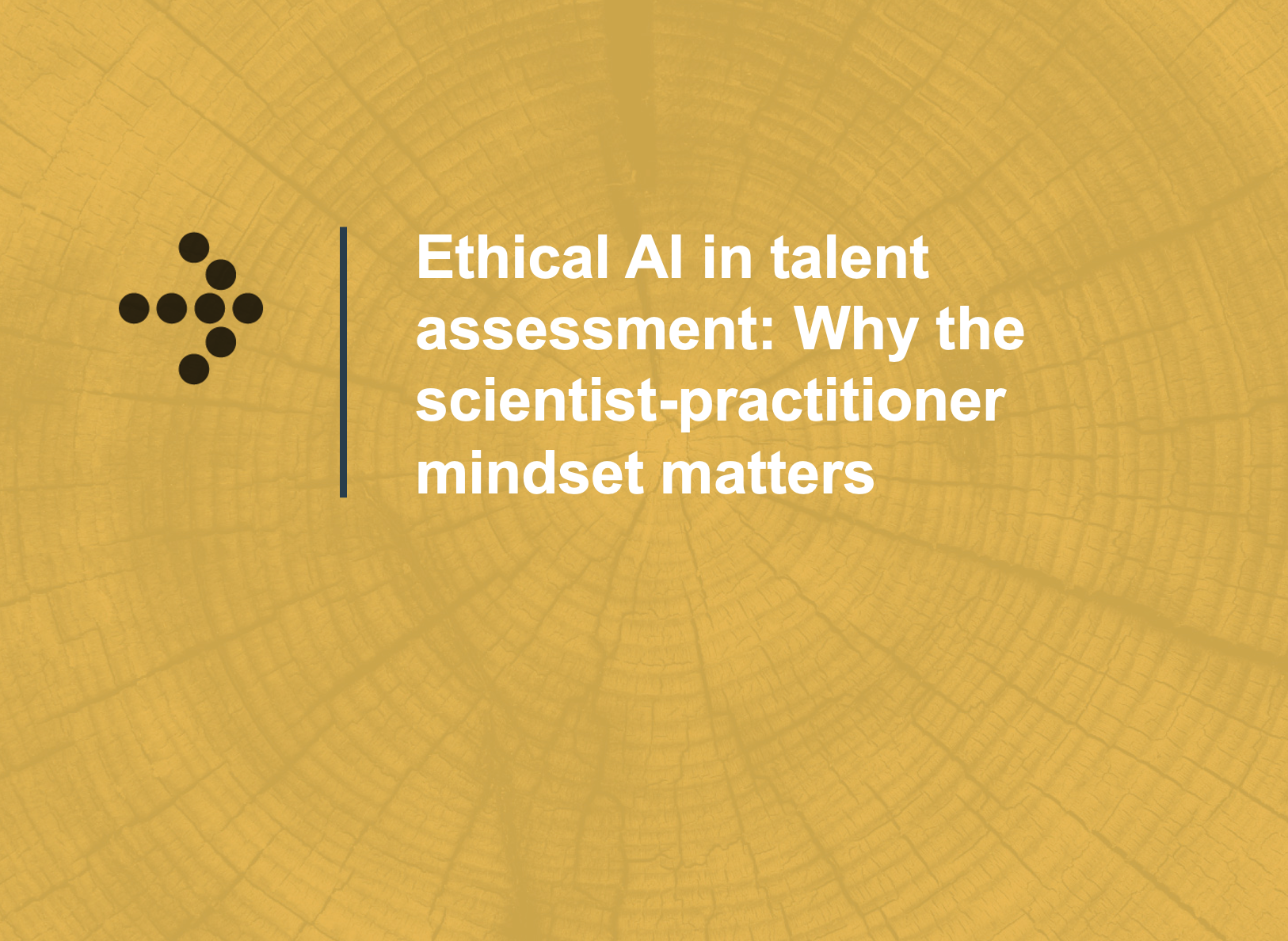Ethical AI in talent assessment: Why the scientist-practitioner mindset matters

At the 2025 SIOPSA Annual Conference, Evalex’s Jaco de Jager delivered a session on The Ethics of AI-driven Talent Assessment and Development: Implications for the Scientist-Practitioner Paradigm.
AI has rapidly moved from the periphery to the core of talent assessment and development, offering extraordinary capabilities, yet bringing equally extraordinary risks. Jaco explored this dual reality, prevailing on practitioners to balance innovation with rigorous ethical governance.
“AI can help us make better, faster talent decisions,” Jaco explained, “but without robust ethical frameworks, we risk embedding bias, eroding human judgment and ultimately automating inequity into the workplace.”
Beyond compliance
Jaco emphasised that ethical AI is more than meeting regulatory requirements.
“It’s about safeguarding fairness, transparency and the dignity of individuals throughout the assessment process,” he said. “We must go beyond compliance to build trust. This means understanding how AI works, validating its outputs and being transparent with candidates about how their data is used.”
The scientist-practitioner divide
A core theme of Jaco’s talk was bridging the gap between academic research and organisational practice.
“Scientists bring rigour, practitioners bring relevance,” he said. “When we work in isolation, we miss opportunities to challenge our own assumptions and strengthen our methods. Ethical AI demands that we close this gap.”
He presented a framework for integrating ethical principles – such as reliability, fairness, transparency and informed consent – into AI deployment. This includes scrutinising training data for bias, validating models in local contexts, and maintaining human oversight in decision-making.
A call to action
Jaco’s message was clear: ethical AI in assessment is not optional.
“If industrial and organisational psychology fails to operationalise rigorous ethical governance of AI assessments, we risk becoming complicit in the automation of workplace inequity,” he warned. “Our role is to ensure AI enhances human potential, rather than diminishing it.”
Evalex remains committed to leading in this space, developing AI-enabled assessment tools that combine innovation with integrity.
“At Evalex, we are dedicated to fairness, transparency and ethical standards in all our assessment processes,” says Jaco.
If you would like to pick up the conversation about ethics in AI assessments, contact Jaco at [email protected].